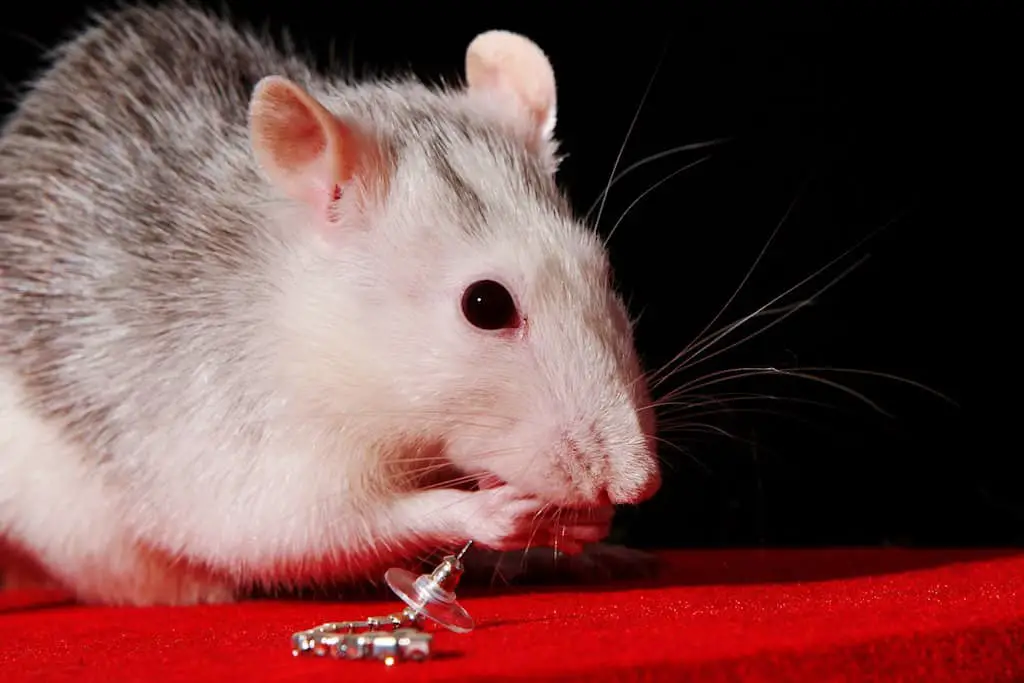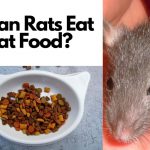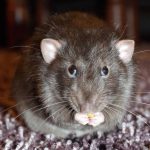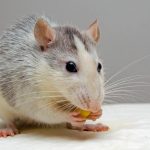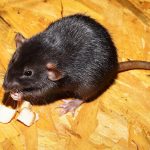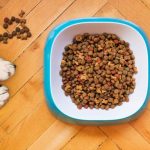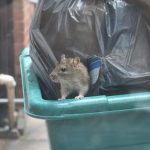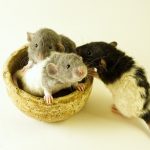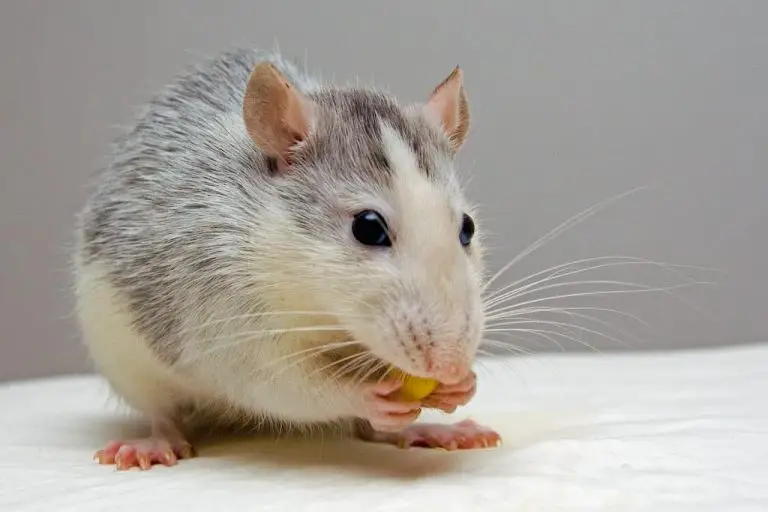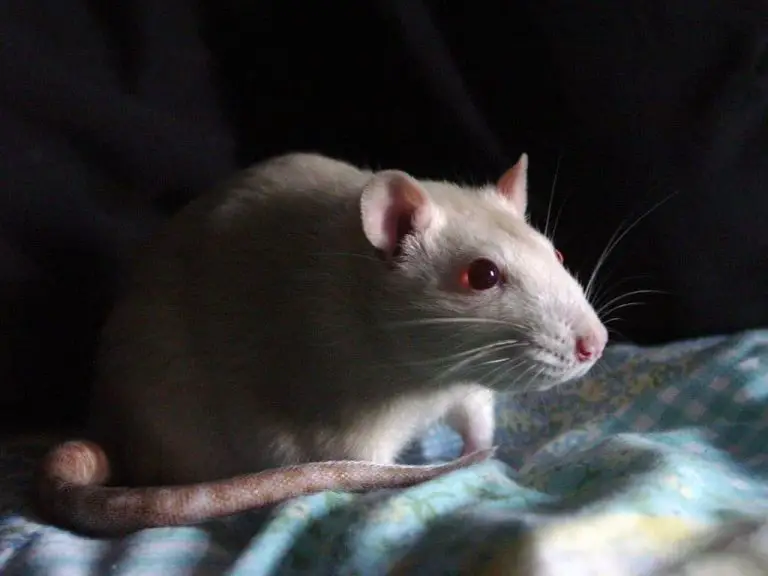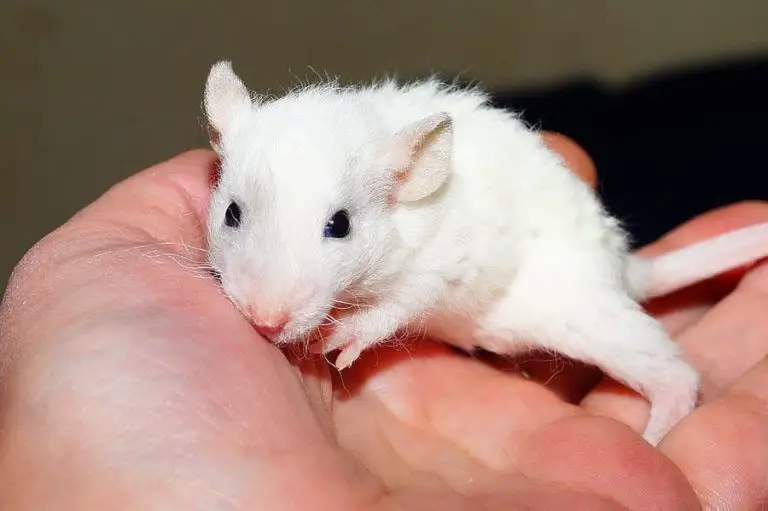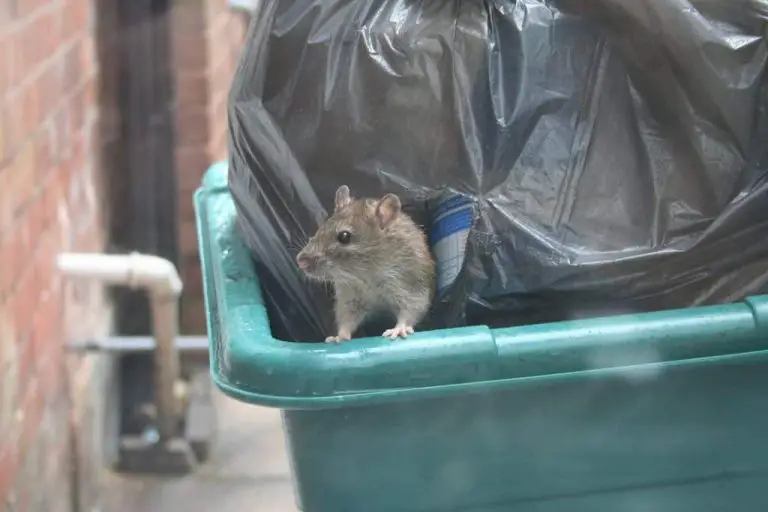What Can Pet Rats Eat?
Pet rats are one of the most popular animals to own. Even though they seem easy to care for, I know that it can be tricky figuring out what they need to eat. There are specific foods that pet rats can eat and other foods that they cannot eat that will negatively impact their health.
Pet rats can generally eat:
- Most fruits
- Most veggies
- Rat pellets and cubes
However, some exceptions are critical to know to keep a pet rat healthy and happy.
Keep on reading to learn more about the food that pet rats can eat. I will also discuss what they cannot eat so you can be sure that the animal is getting the best possible care.
What Pet Rats Can Eat
Pet rats, as discussed above, can eat a variety of fruits and vegetables. They are also able to ingest rat food, which can help them to achieve a balanced diet. This steady diet will give them a long and abundant life.
I will discuss each of the food groups and go over some of the specific items that a pet rat can eat.
I believe that it is critical to have a general knowledge of what can be digested by your pet at all times so that you can avoid harming them. This is to ensure a pet rat can live a long life without putting their health in jeopardy.
Keep reading to learn about the foods that pet rats can eat that you should consider when trying to establish a healthy diet for a pet rat.
Fruit
Rats can eat a variety of fruits. Most of them are safe and will not harm them in any way. I recommend that you feed them the fruit mixed in with an equal portion of vegetables.
Some of the best ones for them include:
- Apples
- Bananas
- Pear
- Various berries, including blackberries and raspberries
- Melons, such as honeydew or cantaloupe
- Stone fruits, including peaches or plums
These fruits can safely be fed to a pet rat. These fruits should make up most of their diet along with plenty of fresh vegetables. The fresher you feed a rat, the longer its lifespan will be. I recommend fresh fruits about twice a day, once in the morning and once in the evening.
Of course, there are a few exceptions. I will talk about these a little later on in this article.
Vegetables
Fresh vegetables make up the other half of a healthy rat’s diet. They should be given to them along with the fruit. There should be an even ratio of veggies to fruit.
Some of the best vegetables that a rat can eat includes:
- Broccoli
- Green Cabbage
- Endives
- Celery Parsley
- Small amounts of fresh corn
- Peas
These vegetables can safely be fed to a rat. I advise you to wash everything thoroughly to avoid exposing the rat to any form of pesticide or chemical that was used in the growing process. As with the fruit, always try to go as fresh as possible. It will be better for them in the end.
Veggies should also be fed twice daily, in the morning and evening. Like the fruit, there are exceptions. We will go over these later on.
Rat Food
Rats should also have rat pellets or cubes to give them nutrients that fruit and vegetables cannot provide. It should not be fed as often as the fruit and veggies, however. This item contains vital protein and fat, which a rat needs. I recommend picking varieties that are high in protein to give the rat the best nutrients possible.
Some of the best formats of rat food that you can buy on Amazon include:
Each of these rat foods is affordable and healthy for pet rats. These should go to it once a day or at the speed that the rat can ingest them. If this means spacing them two days apart, that is fine.
I do not recommend getting rat food that is high in sugar or fat. This sweetness is detrimental to a rat’s health and well-being.
What Pet Rats Cannot Eat
As mentioned above, there are a few foods that a pet rat absolutely cannot eat. Some items include lemon zest, raw beans, and sweet potatoes, among others. It is worth discussing a few of the worst to provide full detail on why they are so bad for rodents.
Accidents can happen. Most of these will not hurt the rat if it is given to them one time. However, the rodent should not eat these consistently. Avoid these items at all costs to protect the life of the pet.
Food with D-limonene
D-limonene is a compound that comes from the peels of citrus fruits. It can dissolve fats in the body, which is healthy for humans. Rats are not as great with d-limonene.
Inside a rat’s body, this item could:
- Cause a tumor, especially in male rats
- Cause kidney toxicity, especially in male rats
- Lead to a premature death
It is best to avoid feeding citrus to a male rat. I do not think that anyone who owns a rat should give them peels. Lemons and mangoes are the biggest causes of d-limonene problems in rats. You may want to avoid these foods, regardless of your rat’s gender.
Raw Beans
Raw beans are not beneficial for most living beings. Both humans and rats need to avoid this substance. If uncooked and eaten, raw beans cause red blood cells to clump together and clot. This issue happens because they contain a substance called lectin-phytohaemagglutinin, which brings the blood cells closer together.
Keep beans in general away from the rat. I do not think that it is worth the risk of subjecting them to a blood clot and premature death.
Sweet Potato
Potatoes can be fed to rats, so I suspect that many people assume sweet potatoes can also be ingested by them. This is not the case at all. Sweet potatoes and rats do not and should not mix.
Inside of a rat, sweet potatoes can:
- Form cyanide
- Cause premature death
- Force blood cells to cluster
Do not give sweet potatoes to rats. This starch will prevent them from living a long and happy life.
Avocado
While avocados can be given to rats in moderation, this should only be if they need to gain weight. They are very high in fat and can quickly cause the animal to become overweight. The avocado puts them at risk for heart disease.
There are parts of the avocado that are toxic. These include the:
- Pit
- Rind
- Skin
- Leaves
A rat should never have these items to eat. It is best to avoid the food altogether unless the pet is underweight and in dire need of a weight boost.
Artichokes
Artichokes are only okay for rats if they are cooked. This item is another vegetable that I would advise to stay away from to avoid accidentally feeding the raw variety to them.
If ingested, raw artichoke can cause:
- Lead to constipation
- Inhibit natural digestion
- Eventually, lead to severe blockage
Artichokes are best left alone. Rats will eat them, but they are not beneficial for them at all. There are plenty of other veggies that will be much better for them. Choose another green that does not have the potential to do them harm if a mistake is made.
Conclusion
Pet rats are in many homes, but lots of people are unsure of what their rodents can eat. I hope this information helped you out and gave you a basic understanding of a typical rat diet.
Though most fruits and veggies are safe, there are a few that rats should not have. As long as those are kept clear, the rodent should live a long and healthy life in any family dwelling.

